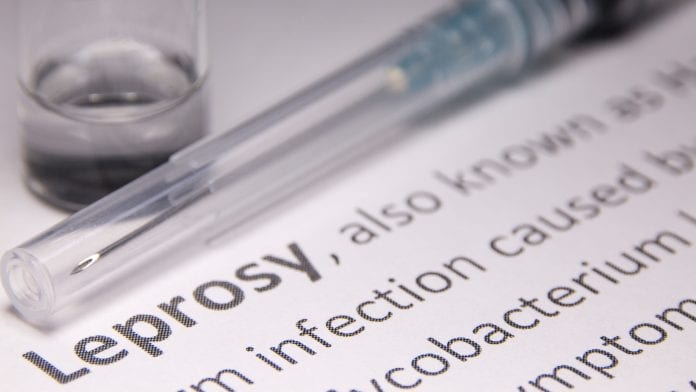
Results from the largest ever research programme combining contact tracing with prophylactic treatment show the approach could massively reduce the global burden of leprosy.
The Leprosy Post-Exposure Prophylaxis (LPEP) programme has traced 170,000 people who had been in contact with individuals newly diagnosed with leprosy and treated 150,000 of them with a single dose of rifampicin to prevent the disease.
The use of post-exposure prophylaxis is expected to interrupt transmission of the bacteria that causes leprosy, meaning that if this approach is scaled up globally, near-elimination of the disease could become a reality in a single generation.
The international multicentre study, initiated by the Novartis Foundation – which has been working with partners around the world on innovative approaches to leprosy elimination – along with the leprosy control programmes of Brazil, India, Indonesia, Myanmar, Nepal, Sri Lanka, and Tanzania, is the most comprehensive attempt to evaluate this approach to a disease which still sees over 200,000 people newly diagnosed every year.
The results of the five-year LPEP programme have been published in The Lancet Global Health.
A new approach
The programme evaluated the feasibility and efficiency of systematic contact tracing, screening, and administration of prophylactic treatment to eligible contacts of individuals who have been newly diagnosed with leprosy, such as household members, neighbours, or co-workers. They showed that once contact tracing has been established, including prophylactic treatment can be achieved with minimal additional effort.
Dr Ann Aerts, Head of the Novartis Foundation, said: “These results mean we can finally imagine a world without leprosy. By using contact-tracing and prophylactic treatment in combination with widespread availability of multi-drug therapy and other tools, we can cover the last mile in the elimination of this disease. We would like to thank the governments, NGOs and investigators who worked with us to make this landmark initiative a reality, enabling post-exposure prophylaxis to be translated into global health policy.”
Use of post-exposure prophylaxis has already been shown to reduce the risk of leprosy in contacts of leprosy patients by nearly 60%, leading the World Health Organization (WHO) to recommend the intervention in its 2018 Guidelines for the Diagnosis, Treatment and Prevention of Leprosy.
Professor Jan Hendrik Richardus of Erasmus MC, University Medical Center Rotterdam, and lead author of the paper, said: “LPEP has demonstrated that this approach to transmission reduction is safe, and feasible through national leprosy programmes. Our research shows that contact-tracing and prophylactic treatment is generally well accepted by patients, their contacts, and health-care workers. The next step is to ensure that prophylactic treatment is rolled out in all settings where contact tracing and screening have been established.”
Reducing the global disease burden
Leprosy often occurs in hard-to-reach communities, and diagnosis is frequently delayed because patients fear discrimination and social stigma. However, if left untreated, patients can develop irreversible neurological damage and associated disabilities and the infection can continue to spread.
Jan van Berkel, President of the International Federation of Anti-Leprosy Associations (ILEP) commented on how post-exposure prophylaxis could help patients manage the impact of the disease: “With this new approach, there is a much lower chance people with leprosy can pass on disease to neighbours and friends, preventing avoidable disability and stigma, in turn helping us to progress towards zero leprosy. We need to see this prophylactic approach applied everywhere.”
“Leprosy is one of Novartis’ four flagship programmes fighting diseases in poor countries, where we aim to work with partners in making a transformative impact,” said Rosanne Rotondo, Head of Global Health Flagship Programs at Novartis. “Scaling up LPEP globally will have challenges, particularly as additional resources will be required. But we have to think how much the world will save – both financially and in terms of avoidable disability, stigma and discrimination – by ending the tragedy of leprosy.”






















